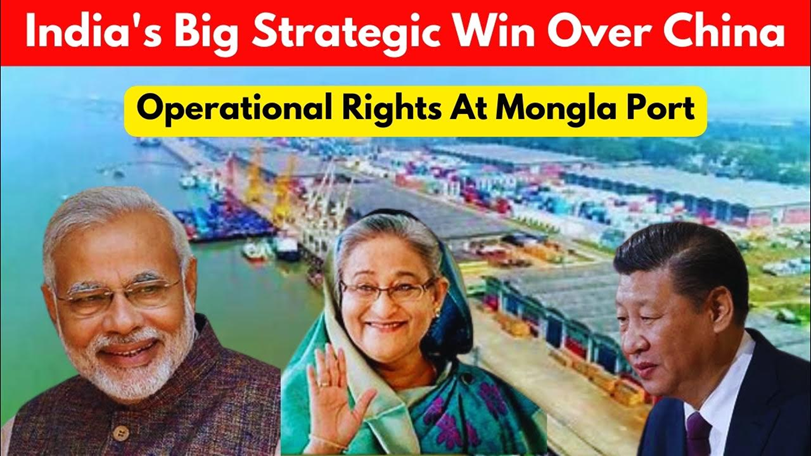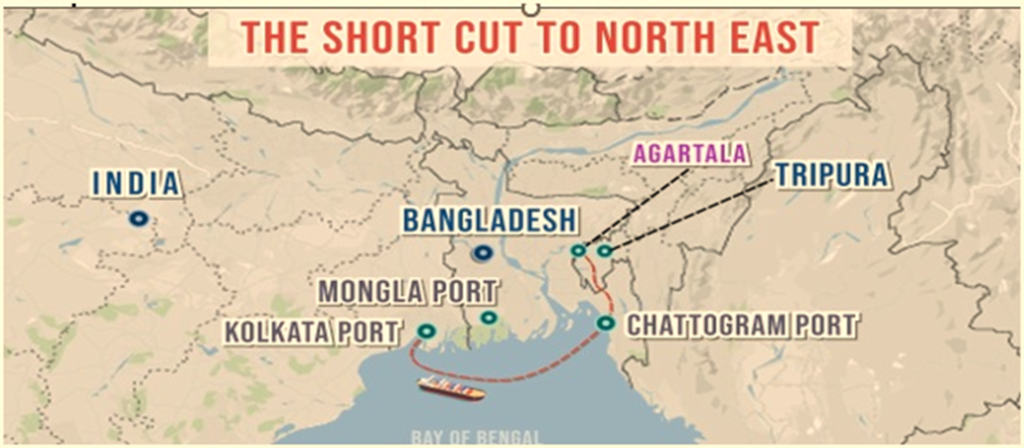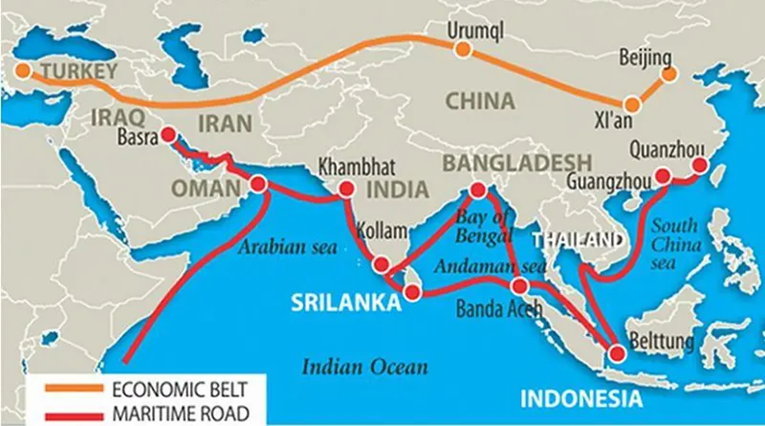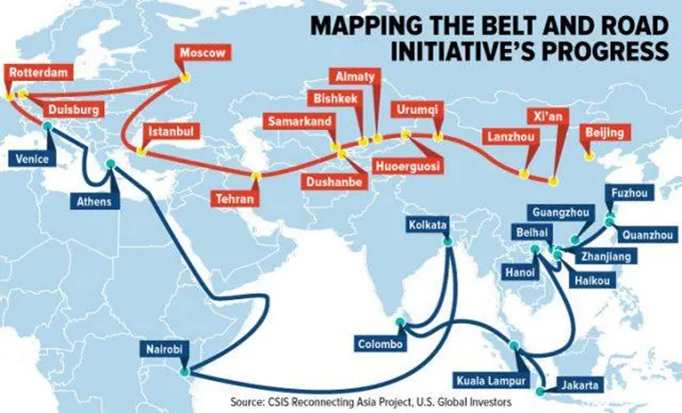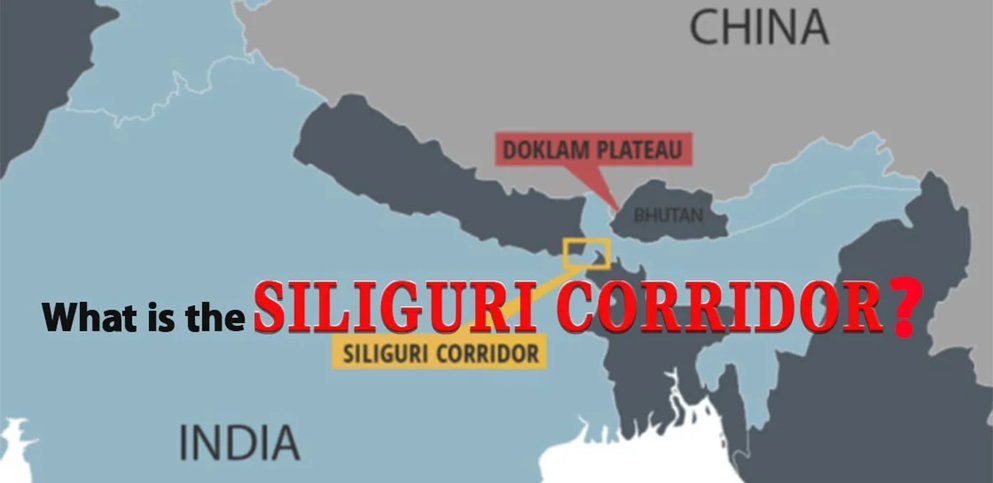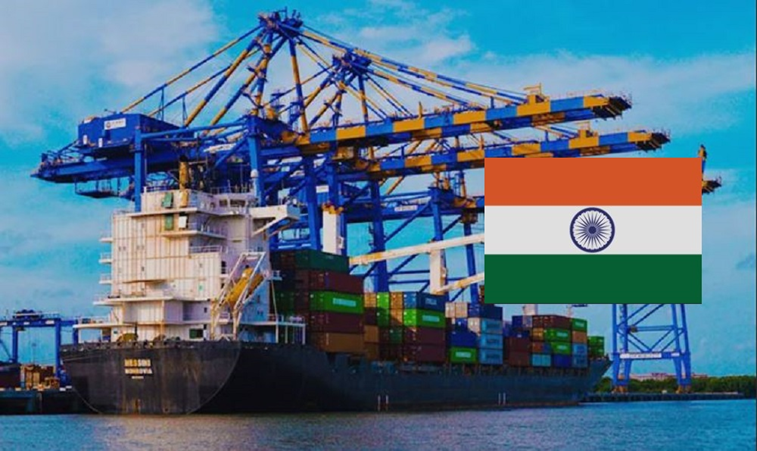India has secured a significant strategic win by obtaining the operational rights to a terminal at Bangladesh’s Mongla port, a move that has notable implications for the regional dynamics, especially for China. This development is seen as part of New Delhi’s broader efforts to counter Beijing’s growing influence in the Indian Ocean and to gain a foothold in strategically important foreign ports.
India Wins Terminal Rights To Mongla Port Over China
Why In News
- India has secured a significant strategic win by obtaining the operational rights to a terminal at Bangladesh’s Mongla port, a move that has notable implications for the regional dynamics, especially for China.
- This development is seen as part of New Delhi’s broader efforts to counter Beijing’s growing influence in the Indian Ocean and to gain a foothold in strategically important foreign ports.
Mongla Port
- Mongla port, Bangladesh’s second-largest seaport after Chittagong, marks India’s third successful bid to manage overseas ports in recent years, following Chabahar in Iran and Sittwe in Myanmar. The exact details of the Mongla port deal remain undisclosed, but according to media reports, the terminal will be operated by Indian Port Global Limited.
- C Uday Bhaskar, a former Indian naval officer and director of the Delhi-based Society for Policy Studies think tank, told SCMP, “Mongla is a potentially major opportunity for India to establish its credibility as an equitable port partner for Indian Ocean littorals seeking such expertise.”
- He highlighted that India, despite being relatively new to the global port management scene, has begun to invest significantly in this sector.
How Has This Move Stunned Beijing
- China has been actively expanding its influence across the Indian Ocean as part of its Maritime Silk Road initiative, investing in ports from Gwadar in Pakistan to Djibouti in East Africa. Beijing’s investments include US$78 million in Djibouti and US$1.6 billion in Gwadar.
- Chinese companies are involved in 17 Indian Ocean ports, constructing 13 of them and holding stakes in eight projects. Beyond the Indian Ocean, Chinese companies have also secured leases for ports or terminals in countries like the United Arab Emirates (UAE).
- “China’s ambitious Belt and Road Initiative mega-project is predicated on efficient management of critical connectivity nodes in the global supply chain, and this is a high priority area for Beijing,” Bhaskar said.
- About 80 per cent of China’s energy imports pass through the Indian Ocean, underscoring the strategic importance of these ports for Beijing. The Mongla port deal is seen as a counter-move to China’s substantial investments in the region, enhancing India’s influence over key maritime locations and reinforcing its role in regional security.
How Is Bangladesh Benefitting From This
- Bangladesh stands at a strategic crossroads in South and Southeast Asia, making it a potential hub for intra-regional trade in the Indo-Pacific. The country joined China’s Belt and Road Initiative (BRI) in 2016, hoping to leverage Beijing’s financial resources to boost its infrastructure and economic integration.
- China has been a significant investor in Bangladesh, with projects including the development of a 750-acre industrial park in Chittagong and a single-point mooring system at the Chittagong port. However, the Mongla port represents a critical juncture where Bangladesh must navigate its relationships with both China and India carefully.
- Bangladesh Prime Minister Sheikh Hasina’s recent trips to both India and China highlight this balancing act. During her visit to India, several cooperation agreements were signed, including those in the maritime sector.
- Conversely, her trip to China resulted in a comparatively modest US$137 million financial assistance, far short of the US$5 billion loan she sought.
Why Is This Deal Important For India
- Management of the Mongla port terminal is expected to significantly enhance India’s trade connectivity and regional influence. In 2018, Bangladesh granted India full access to both the Chittagong and Mongla ports for transit and cargo shipping, a move that has already boosted bilateral trade.
- Sohini Bose, an associate fellow at the Observer Research Foundation, wrote, “Firstly, it will be instrumental in enhancing bilateral trade with Bangladesh. Secondly, it will allow India’s landlocked northeast opportunities for maritime trade through alternative access to the Kolkata port, bypassing the narrow and congested Siliguri corridor.” The Mongla port, in close proximity to Kolkata, could significantly reduce shipment times and improve trade efficiency.
- India’s involvement in the Mongla port not only enhances its economic ties with Bangladesh but also counters China’s expanding maritime influence. The port is strategically significant as it provides India with a foothold in the Bay of Bengal, an area increasingly becoming a theater for geopolitical competition. By securing the operational rights to the Mongla port terminal, India aims to project its maritime power and secure its interests in the Indian Ocean, a region critical to its national security and economic growth.
